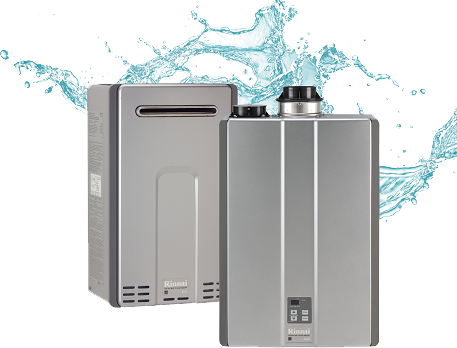Most water heaters in the U.S. are storage water heaters that utilize large tanks. These water heaters use electricity, natural gas, and propane to heat water and keep it hot for long periods of time so that it can be used immediately in homes or businesses.
An alternative to storage water heaters are tankless water heaters. Instead of storing large amounts of hot water, these units heat water as it passes through them, eliminating the need for large tanks. Although they are becoming increasingly popular, these types of water heaters have a few significant drawbacks compared to standard and traditional water heaters.
Drawbacks of Electric Tankless Heaters
The concept of electric tankless heaters can make them seem more appealing than bulky storage water heaters, but in practice, they have several drawbacks, including:
- Higher initial cost
The price point for an electric tankless water heater is much higher than it is for a traditional storage heater. In addition, installation costs are also higher for tankless heaters. Finally, when the tankless heater has issues and needs to be serviced or repaired, you can expect to pay a higher price when the technician hands over his invoice. - Less flexibility and fewer water temperature options
With a storage water heater, you can enjoy hot water from multiple sources at the same time. That means washing dishes in the sink, running your dishwasher, and taking a hot shower simultaneously is something you can do daily. But with tankless heaters, you may need to purchase a larger unit or even additional units to get hot water flowing from multiple sources. In addition, it’s more difficult to get exact temperatures with tankless heaters for long a period than it is with storage heaters. - Complicated devices mean more problems and unreliability
Standard storage water heaters are relatively simple machines. They have only a few major components that get wear and tear and they use a simple process to heat water. Tankless water heaters, on the other hand, are more complicated, and when it comes to machinery and appliances, complicated means less reliable. - Underwhelming energy savings
Many homeowners are sold on tankless water heaters by promises of lower energy costs. However, that’s often not the case—especially when compared to a well-insulated storage heater. True energy savings come when homeowners install tankless heaters at every faucet, but the initial costs are often too high for that to be a feasible option.
Got Questions about Water Heaters? We’ve Got Answers.
Getting fast and reliable hot water in your home or business is essential, and it’s important that you make the right choice when purchasing a heater to avoid major headaches and hassles down the road. If you have questions about the best type of water heater for you, contact Aqueduct Plumbing Company, LLC, today to discuss your options.


